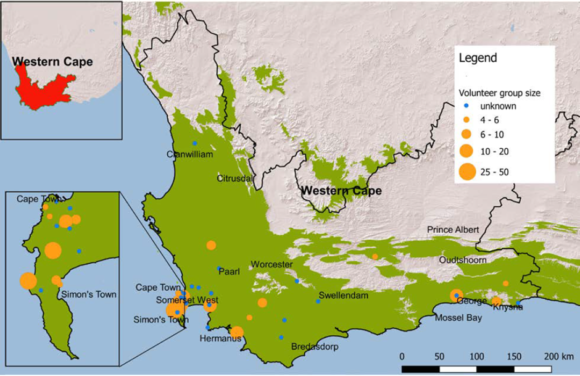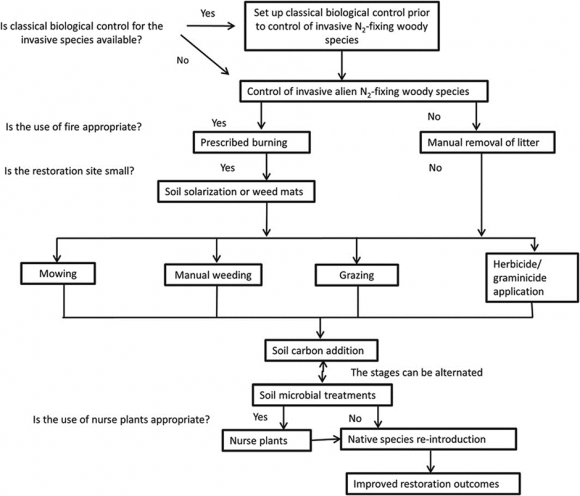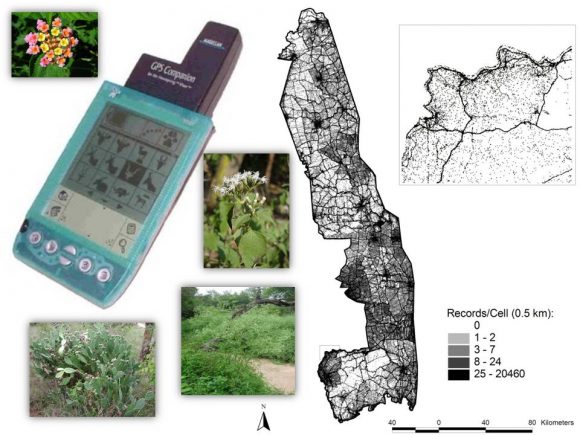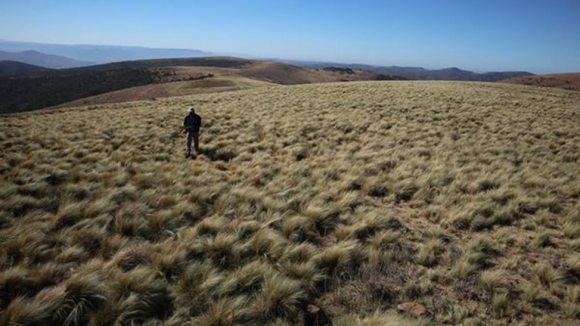Volunteers play an important role in invasive alien plant species (IAPS) management and are likely to continue doing so into the future. Better co-ordination and engagement between volunteers and mandated authorities on science, policy and management are required to improve the volunteer groups and keep volunteers motivated to manage IAPS.
This was a finding of a recent study conducted by Nolwethu Jubase, a former C·I·B MSc student and C·I·B Core Team Member, Dr John Measey in collaboration with C·I·B Associate Researcher Dr Ross Shackleton from the Institute of Geography and Sustainability, University of Lausanne, Switzerland. The study, which was aimed at examining motivations and contributions of volunteer groups in the management of invasive alien plants in the Western Cape province was published in the journal Bothalia ABC.
Research and management of biological invasions traditionally focuses on state-operated, large-scale control initiatives, with little emphasis on the efforts made by volunteers to clear IAPS – which remains a current knowledge gap in South Africa. Volunteers can, however, contribute to detection, extirpation and containment of invasive alien plant species (IAPS). Understanding the motivations and contributions of volunteers to manage IAPS, and developing strategies to maintain their enthusiasm and willingness to participate is important to improving successful IAPS control. Emphasis should also be placed on understanding the barriers that can negatively affect volunteer participation to guide relevant adaptive responses and policy.
The authors identified and mapped 52 volunteer groups in the Western Cape managing IAPS. Most of the volunteer groups are concentrated within the city of Cape Town, with some groups in smaller towns scattered throughout in the rest of the province (see Figure 1). They authors estimated that half of these groups that participated in the survey clear nearly 5 300 ha of land per year with estimated labour contributions of ZAR 5.1 million (equivalent to USD 0.32 million) when aligned with formal state management cost estimates.
Most volunteer groups raise their own funds to facilitate their work, however, many suggest support from government entities, landowners and Non-Governmental Organisations would really help. Most volunteers detect and report invasive species to their team leaders, citizen science platforms and relevant authorities. Volunteers themselves gain physical and psychological fulfilment and build their social capital by meeting new people.
“This is the first documented information on the status of volunteer groups and their contributions to IAPS management in South Africa,” said lead author Nolwethu Jubase. “The results from this study can be used as a baseline to understand how volunteer groups operate, their motivations and their challenges in South Africa and in other countries.”
Read the full paper
Jubase N, Shackleton RT, Measey J (2021) Motivations and contributions of volunteer groups in the management of invasive alien plants in South Africa’s Western Cape province. ABC Bothalia 51, 2(8 July): doi:10.38201/btha.abc.v51.i2.3
For more information, contact Nolwethu Jubase at n.jubasetshali@sanbi.org.za




